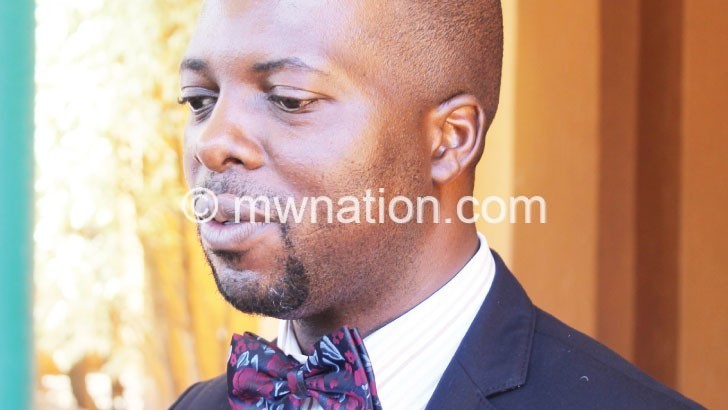Beating vision 2020 politics
Our Staff Writer JAMES CHAVULA asks National Planning Commission (NPC) chief Thomas Chataghalala Munthali how Vision 2063 will beat flop Vision 2020’s shortfalls.

Q
: Are you surprised that Vision 2020 collapsed silently and no one really cared?
A
: Well, ‘surprised’ may be is a bit of an overstatement. One of the key things that make a vision tick is to constantly have it in mind. The reminder will always spur you to action. It is like some households that have some aspirations put together. Normally, they put them on the dashboard of their cars as a constant reminder of the things they plan to achieve at a given period.
Perhaps, that is a lesson we can have as a country in the successor vision. We will have to create mass awareness. At every electoral cycle, we will have to take the vision to candidates and political parties competing to get into power to tell them that this is what the people want, it is not anybody’s vision; it is the people’s vision.
Q
: Vision 2020’s failure confirms that politicians love to promise quick gains that bring votes, will they buy the next long-term strategy?
A
: It will be up to the politicians to come up with suggestions on how best they feel point A or B can be achieved. The process will not end here. We will be taking the suggestions to the public for feedback. In that way, any political regime that comes to power has to talk to suggest the best ‘how’ to achieve the vision. Between the electoral cycles, we will constantly remind them about the national vision. The same will happen during the electoral year. The more it is placed on their minds, the more likely the politicians will also be forced to ensure that whatever plans or manifestos they release are in line with the national vision.
Q
: Beyond December 31, how will the next vision bring change to Malawians who have not seen the benefits of Vision 2020?
A
: For such a population, we need to begin to think how best to deliver on the aspirations. We are excited to say that if we all pull towards the same direction, we should be able to create a productive society and an economy that is going to take us out of poverty.
In the past, it was like donors had wanted us to have a long-term vision so that we tick the boxes first for them to give us funds. But this time, we have to need it. We have to show that it is important for us to have a vision that is going to help each and every Malawian to live a dignified life. For this to happen, we all need to embrace it as a nation.
Q
: Where is the money for the implementation of the next vision?
A
: The vision itself would have to generate its own money. When you are kick-starting it, you have got to know that in any environment, even at the household level, you will need seed money to start off. But that is supposed to be just that—seed money. You don’t want to be supported perpetually by funds from outside.
That is why we need to focus on the wealth creation agenda. Once we get into that, whatever foundations we are laying with our national budgetary resources—whether we are investing in energy, proper road infrastructure that are strategic roads, whether we are investing in ICT, etcetera—these mechanisms for wealth creation already are going to be put in place. So these are self-wealth generating initiatives. And so, the development partners will be key for the starting point. But we need to get them to support the vision in the initial stages and not them defining what our destiny will be. But they will still be very central in the initial stages to support us to get to where we want to be.
Q
: Where is the place of the politician in the new national vision?
A
: The politician remains very central to this agenda. I think we are getting it all wrong when we start talking as if politicians have to be pushed away. The whole essence of development—both planning and implementation— is about politics. So, the politician is very crucial in making sure that the people have what it takes.
As politicians, they go out there outclassing each other simply because they want to showcase who would bring the best solutions to national problems. What is key though is how we motivate the politician to be able to implement the vision.
First, I think, it is key to get the politician to buy into the vision and one of the key issues is that this has to be defined by the people so that s/he knows that the people have spoken. This will then lead the politicians into thinking on how best they can deliver on this particular vision.
As a planning commission, we are going to work as a think-tank for the politicians, advising them on what can work or not by referring to the evidence on the ground. If you put something in a manifesto, when it comes to implementation, we have to advise accordingly.
Once we have the politician’s interests also covered, for the good of the nation, we will have to see that things are moving in the proper direction.
Q
: So, when should Malawians expect the next vision?
A
: The plan is to launch the next vision before the end of next year. Actually, we are targeting October. By all means, we need to ensure that before the end of next year, we have a new vision so that there is no lengthy gap between the current Vision 2020 and the succeeding vision. n





